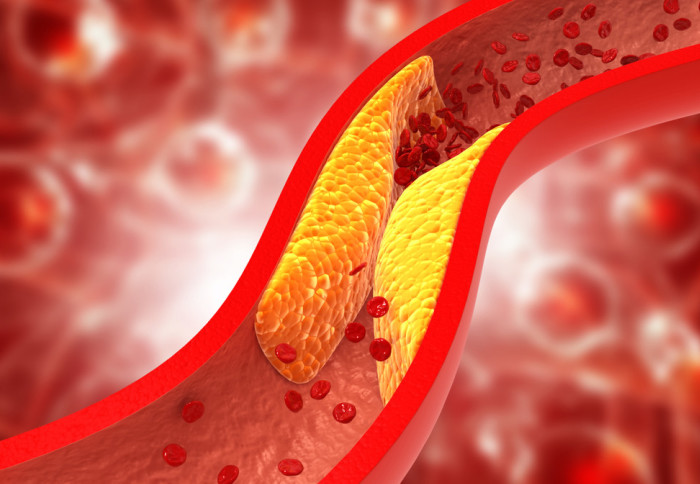New antibody can unlock secrets of cholesterol
by Ellyw Evans

Researchers at the NHLI have created a monoclonal antibody that could help doctors to spot dangerous plaques in arteries earlier.
A new monoclonal antibody could make it easier for doctors to spot atherosclerosis, the fatty plaques in arteries that are responsible for most heart attacks and strokes, potentially helping more people to avoid these devastating conditions according to research funded by the British Heart Foundation and published today in JACC: Cardiovascular Imaging.
Scientists at Imperial's National Heart and Lung Institute (NHLI) have created a monoclonal antibody that can recognise and bind to low density lipoprotein (LDL) cholesterol in fatty plaques in arteries. Unlike others, this antibody binds to cholesterol that has been newly deposited in the artery wall.
The team think the antibody will help scientists to unlock important insights into how atherosclerosis develops. They also hope it could be used to help doctors to spot plaques in their patients’ arteries at an earlier stage, allowing people to make lifestyle changes and begin treatments that can slow their progression.
The new antibody was generated in the laboratory of Dorian Haskard, Emeritus BHF Professor. The research was led by Dr Ramzi Khamis, BHF Intermediate Clinical Research Fellow at the National Heart and Lung Institute, Imperial College London and consultant cardiologist at Imperial College Healthcare NHS Trust.
Dr Khamis said: “This antibody binds to part of a cholesterol molecule that is only revealed once it has attached to the artery wall. This discovery will change the way scientists think about atherosclerosis, opening new opportunities for studying what happens in blood vessels as these plaques develop."
Atherosclerosis is a progressive disease
Atherosclerosis is common, though most people don’t know they have it. Over time cholesterol and other fatty material builds up in the walls of arteries to form plaques. These plaques can cause blood vessels to become narrow, restricting blood flow. They can also rupture and form clots that block blood vessels, leading to heart attacks and strokes.
Using samples of plaques removed from the carotid and coronary arteries (which supply the brain and heart muscle, respectively) during surgery, the researchers found that their new antibody bound to cholesterol towards the edges of plaques.
They also compared its binding to that of a previous antibody they have investigated, which only recognises cholesterol that been in plaques for longer and has undergone chemical changes. They found that the two antibodies accumulated in different areas of the plaques, consistent with the new antibody binding to cholesterol in plaques that has been deposited more recently.
Finally, the team showed that the antibody was able to bind to ‘living’ plaques. When they injected it into mice with high cholesterol levels imaging revealed the antibody bound to plaques in the aorta (the main artery carrying blood from the heart to the body) and the carotid artery.
Early stage research
The researchers are currently investigating whether the antibody could be used with a type of scan called positron emission tomography (PET) to detect plaques. While this work is currently at a pre-clinical stage, the team hope that this will demonstrate its potential as a tool to detect the early stages of atherosclerosis.
Lead author, Dr Khamis said “This research is still at an early stage, and we need to understand more about the antibody before we can consider injecting it in humans. But we’re hopeful that this is the first step towards new ways of detecting atherosclerosis.”
Professor Metin Avkiran, Associate Medical Director at the British Heart Foundation, said: “Every year in the UK there are as many as 100,000 hospital admissions due to heart attacks and there are more than 100,000 strokes.
“Atherosclerosis is the cause of most heart attacks and strokes. It’s too early to say for certain, but antibodies like this could one day allow us to diagnose atherosclerosis at an earlier stage and help more people to avoid heart attacks and strokes.”
_
"Monoclonal Autoantibody Against a Cryptic Epitope on Tissue-Adherent Low-Density Lipoprotein for Molecular Imaging in Atherosclerosis" by Ramzi Y. Khamis is published in JACC: Cardiovascular Imaging.
This article was adapted from a press release from the British Heart Foundation.
Article supporters
Article text (excluding photos or graphics) © Imperial College London.
Photos and graphics subject to third party copyright used with permission or © Imperial College London.
Reporter
Ellyw Evans
Faculty of Medicine Centre